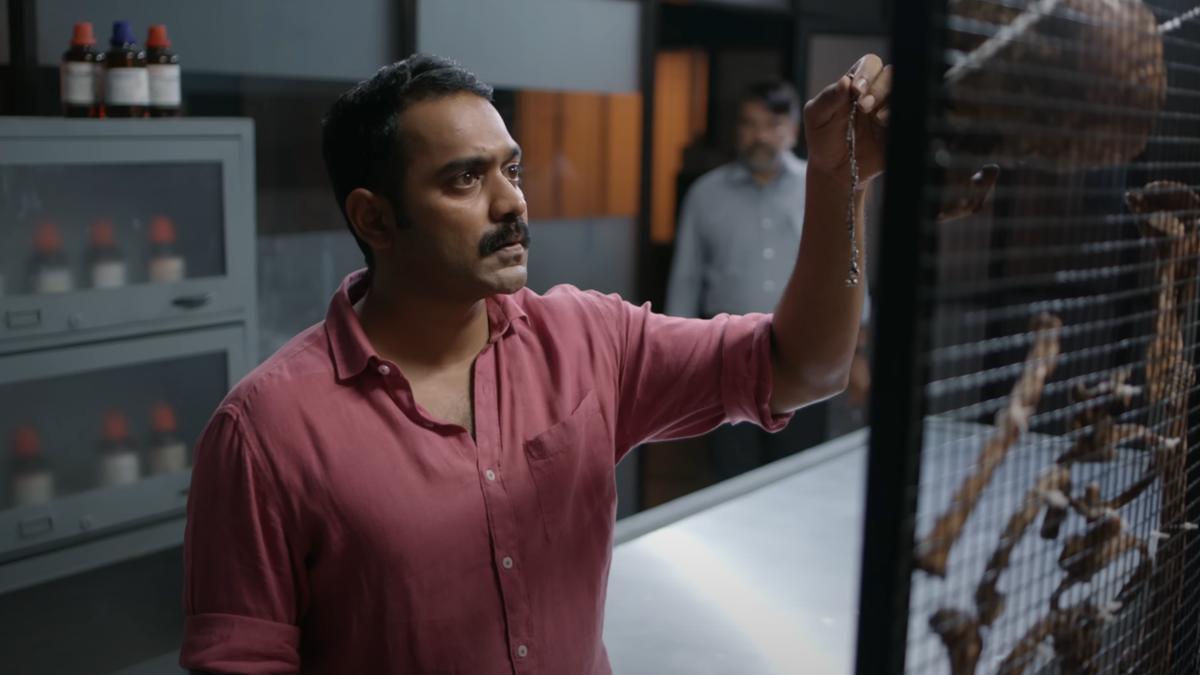
**Will the Hema Committee Report Transform the Malayalam Film Industry?**
The story so far:
On August 19, the Hema Committee report, spotlighting a myriad of issues plaguing the Malayalam film industry, especially those impacting women, was finally made public, nearly five years after its submission to the Kerala government. The exposé, with identities of witnesses and the accused redacted, has sent tremors through the industry, uncovering sexual exploitation, illegal bans, lack of written contracts, inhumane working conditions for junior artistes and crew, absence of basic amenities on film sets for women, and numerous other grave concerns.
On the evening of February 17, 2017, a leading actress was abducted and sexually assaulted by a group of men inside a moving vehicle in Kochi, a city that serves as a hub for the Malayalam film industry. The actress immediately filed a case the following day. This incident propelled a wave of challenges to the entrenched power structures of Malayalam cinema and led to the birth of the Women in Cinema Collective (WCC), consisting of some of the industry’s most renowned women actors and technicians. Responding to demands from WCC members, Chief Minister Pinarayi Vijayan commissioned a committee headed by K. Hema, a retired Kerala High Court judge, to investigate issues of sexual harassment and gender inequality within the industry. The committee also included former bureaucrat K.B. Valsala Kumari and actress T. Sarada.
The report, filed to the Kerala government on December 31, 2019, remained under wraps for nearly five years, fueling intense speculation about its contents. Despite repeated calls from several stakeholders, including the WCC, the report stayed concealed. The Department of Cultural Affairs rejected Right to Information (RTI) applications, highlighting the privacy of witnesses.
On July 6, the State Information Commission ordered the department to release the redacted report to the public by July 25. However, the government deferred the release after various parties, including a producer and one of the witnesses, approached the Kerala High Court, citing privacy concerns. The report was finally made public after the High Court dismissed the petitioners’ objections.
Rumours about the existence of a “casting couch”—a practice where sexual favours are demanded in exchange for roles—have long shadowed the film industry. The report, accessed by The Hindu via an RTI request, confirms the existence of such a practice through in-camera testimonials from several witnesses who appeared before the committee. Witnesses provided evidence, including audio clips, video clips, and WhatsApp screenshots.
“Male mafia”, “casting couch”, and reports of junior artists being treated worse than slaves: these are some of the dark revelations highlighted in the Hema Committee report on the Malayalam film industry. The report’s release has stirred a political tempest, hitting the LDF government at its core. The Kerala government has now placed the responsibility on the committee, citing an inability to take legal action without substantial evidence.
The committee heard several testimonies from women in the industry narrating how men would knock on their doors late at night, sometimes attempting to forcibly enter their rooms. The report sheds light on women who were pressured to work with their abusers. Many women expressed apprehensions about approaching the police or disclosing incidents to even close relatives, fearing repercussions like industry bans and cyberattacks.
.
The Malayalam film industry is dominated by a powerful group of male producers, directors, and actors, referred to by a prominent actor as a “mafia”, who hold the power to ban anyone from the industry. WCC members have faced informal bans for raising their voices against industry malpractices. The report also underlines the absence of changing rooms or toilets for junior artistes on sets, especially in outdoor locations, leading to urinary infections for many women. It draws an extensive picture of the miserable conditions junior artistes endure, working long hours for meager pay, likened to slavery.
The release of the Hema Committee report has prompted more revelations. Amid ongoing debates, AMMA (Association of Malayalam Movie Artists) denies the existence of a “power group” in Malayalam cinema. Opposition leader V.D. Satheesan has called for the resignation of Ranjith, the chairman of the Kerala State Chalachitra Academy, amidst the revelations.
Compared to other South Indian film industries like Tamil and Telugu, the Malayalam industry generally operates on relatively lower budgets. However, expanding markets in recent years have led to a significant rise in investments, and the industry now produces an average of 200 films annually.
One of the primary recommendations of the committee to the State government is enacting a statute and creating a tribunal to address the issues affecting women in cinema. The committee also notes that an Internal Complaints Committee (ICC) might be ineffective, as powerful individuals could intimidate or coerce ICC members into biased handling of complaints. The report suggests that film production units should provide temporary toilets and changing rooms.
A notable barrier for women in the technical side of cinema is their notably low numbers. At the K.R. Narayanan National Institute of Visual Science and Arts, a film institute under the Kerala Department of Higher Education, only two women were enrolled out of 44 students in the technical departments during the years studied by the committee. Recommendations include reserved seats and scholarships for women in film schools.
Legal experts assert that the revelations offer sufficient grounds for the government to launch a special investigation. Critics, including opposition parties, have censured the government for the report’s delayed release and demanded an investigation led by a team of senior female police officers. Chief Minister Vijayan has pledged decisive intervention if any testimonial complainant comes forward against their alleged persecutors. Meanwhile, the Kerala High Court’s division bench has directed the government to submit the entire committee report in a sealed cover and has sought the government’s stance on the actions to be taken. The case is set for another hearing on September 10.
The release of the redacted report is hailed as a partial victory by the WCC, as it has kindled discussions on critical issues they have long highlighted. It could potentially lead to significant reforms in an industry that has been lauded nationwide for the quality of its cinema.










